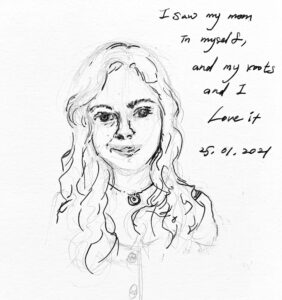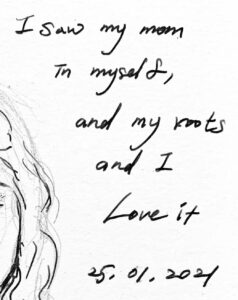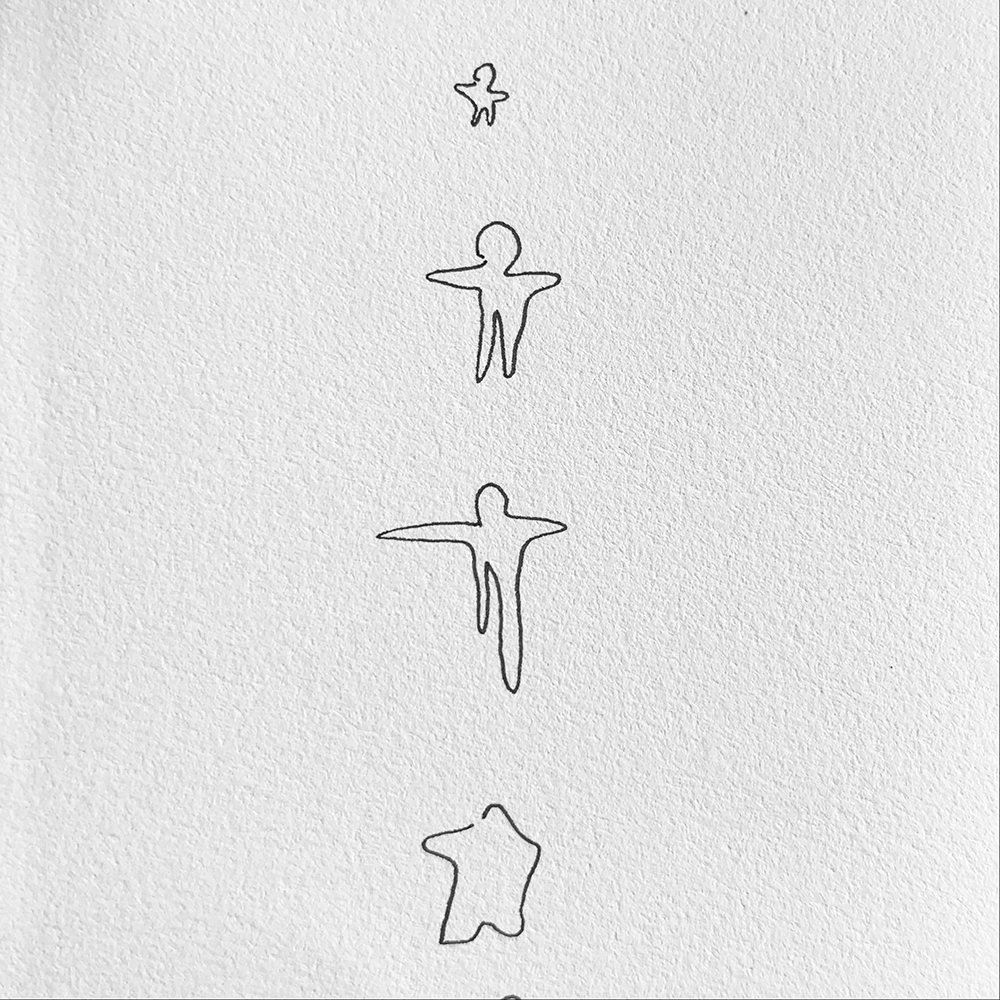

Work timeline
I present my professional profile under the premise that the information should be accessible to everyone irrespective of race, socioeconomic status, age, gender, or capacities. For this reason, since 2011, I have focused on exploring the forms of communication most pertinent to specific groups in an attempt to understand how they communicate, perceive, and read the world.
In my first years, I focused primarily on indigenous communities and farmers in vulnerable situations, including victims of armed conflict, to understand how their collective memory functions and how it travels across generations through oral tradition.
2013 – 2017 Made editorial design, worked with blind people in museums, in the cinema industry, and in data journalism, making digital data visualization.
2015- 2019 With the Chicas Poderosas organization, I developed and delivered a number of locally adapted online and in-person workshops and projects around Latin America for Afro-Indigenous and female communities from both rural areas and cities.
Furthermore, Lia Beltran and I created a cross-border 3 years online project led by women from different contexts to check policy information circulating through WhatsApp during Colombian election periods. This project combined the means of graphic design and communication with journalism in an effort to clearly communicate key information to a wide population with varying levels of literacy. The project was embraced by multiple generations and managed to expand to Brazil, Mexico, and Venezuela. This project allowed me to experience a wide spectrum of the ecology of misinformation in Latin America. From this project, I developed a passion for data visualization and used this newfound passion to create a workshop in analog methods that are recognizable to the aforementioned populations in a state of vulnerability. This workshop was adopted by the United Nations, and I facilitated a number of sessions to facilitate local UN officers how to collect, analyze, share, and discuss valuable data with these populations who speak local dialects and live without the internet .
2018With the intention of further developing my communication skills on other topics, I decided to work with the organization Meedan to gain an insider perspective on how they create and share software and AI tools that larger populations use to communicate. Through this work, over the course of a year, I began to understand a wider spectrum of communicative practices in countries in Africa, Asia, and Europe. I further developed an interest in public health. I was not able to spend sufficient time in Meedan to understand the full scope of their work. I entered UNDP Express Rooster in 2020 as a communications consultant with the intention of moving to a high-need area of the world to focus on offline and online social listening methodologies.
2019 – 2020Having dedicated the best years of my life to vulnerable groups, i decided to take a big step and move forward to learn more about the Asian context, so I enrolled in the Chinese language course at Shenzhen University.I left for the December holidays, but due to COVID and the closing of the borders with China, I could not return home. What were two weeks of vacations became three years in Laos, with two of those living in hotels.
2020 – 2021I worked as a volunteer on a conservation project in Northern Laos as an independent researcher in an exploratory project studying the interrelationships between nature and society, considering the human dimensions of biodiversity conservation and the management of natural resources from political ecology and socio-environmental studies, with a starting point in the symbolic and material relationships of indigenous communities with the forest. Making an attempt to understand the tensions that arise between the rural way of life of traditional populations and the new rurality driven by the country’s development, and describing the transformations that these two phenomena have generated in the relationships between culture, nature, and society.
Sporadically support grant proposals, feedback, surveys, and capacity building for Lao girls team mates in SBCC (social behavior change communication) in conservation and implement gender and diversity frameworks in their workflow. At the same time, i was working back at Meedan as an independent researcher consultant in the Digital Health Lab project, working on the development of relevant and comprehensive search term lists related to predetermined public health and climate change topics and supporting research on content in service of strengthened health and climate change misinformation response policies. Online social listening in English, Spanish , Portuguese, and Italian media outlets of relevant national and regional health policy.
In June 2021, I decided to take a year off to think about myself and what I wanted to focus on for the next few years. During this break, I was certified by the World Health Organization as an infodemic manager to promote access to health information and mitigate harm from health misinformation among online and offline communities.
2022I worked as an international consultant for EnABLE, a one-year World Bank pilot project in Laos that aims to improve the inclusion of the target beneficiaries—Indigenous Peoples, local communities, civil society organizations, and disadvantaged groups, such as women, youth, and people with disabilities—into the programs for reducing emissions. I coordinated and oversaw the CERS EnABLE team’s and partners’ pilot activities in about 28 villages in the provinces in remote areas of Lao PDR. I also worked closely with the Lao Women’s Union, the Lao Front for Development, and REDD+ to develop a strategy so that both government and non-government stakeholders could participate and benefit.
As part of our work, we developed a matrix to analyze the proper implementation of the principle of Free, Prior, and Informed Consent (FPIC) for indigenous peoples and local communities. This matrix entailed assessing the country’s approach to safeguards and the utilization of FPIC instruments in the context of REDD+ activities. An essential aspect of this process was ensuring that the language used in documenting FPIC activities was appropriate and comprehensible to the communities. By doing so, we aimed to facilitate their full understanding, assimilation, and effective implementation of the FPIC process.
2023After several years, I have now returned to Colombia with the purpose of reconnecting with the wisdom of ancestral plants, which will guide me on my new path. As I navigate this process of reconciling with uncertainty, my ultimate goal is to find a job that allows me to integrate the diverse elements I have explored over the past 12 years: studying resilience in communities after a climate event, magic, indigenous ancestry, art, conservation, technology, and design. I aspire to shape an optimistic nihilist vision of the future by combining these aspects with my extensive experience in communication and a steadfast commitment to core values such as environmental responsibility, social justice, gender mainstreaming, and equity. Throughout my work in various fields across North, Central, and South America, as well as Southeast Asia, I have gained valuable expertise. Moreover, I seek to develop strategies that can be widely applied across continents in the future, always seeking to learn more and more.
